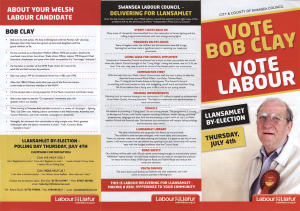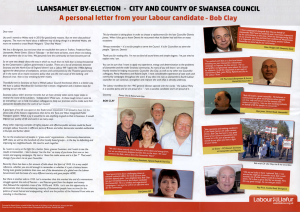PLEASE APPRECIATE THAT I GET SENT MORE INFORMATION AND LEADS THAN I CAN USE. I TRY TO RESPOND TO EVERYONE WHO CONTACTS ME BUT I CANNOT POSSIBLY USE EVERY BIT OF INFORMATION I’M SENT. DIOLCH YN FAWR
♦
I concluded last week’s offering with a section on Llanbedr Airfield and a promise to return to the subject. Well, here we are, and sooner than expected.
That’s because information has come to light that makes the picture clearer. Clearer but not more reassuring, certainly not for us poor buggers who – through our tribunes and the civil servants who ‘advise’ them – seem to end up funding every con man and shyster who crosses the dyke looking for easy money.
◊
UP UP AND AWAY!
To briefly recap. There has been an airfield at Llanbedr, between Harlech and Barmouth, since WWII, but it was closed or decommissioned in 2004.
The site was bought in August 2006 by the Welsh Development Agency for £700,000. (Title document.) And then, despite having just bought the site, the Welsh Assembly Government sought a taker for a 125-year lease.
Though as the sheet below tells us, in an answer to Tory AM Darren Millar in June 2008, then minister for economy and transport, Plaid Cymru leader Ieuan Wyn Jones, is adamant that no funding has been offered to ‘sweeten’ the deal.

The timing is significant because it was being reported in February 2008 that Welsh Ministers had awarded preferred bidder status to Kemble Airfield Estates Ltd, the operators of Kemble Airport near Cirencester. (Formerly RAF Kemble.)
As anticipated, in December 2008, the ‘Welsh Government’ gave the go-head for Kemble to take over the airfield, subject to Kemble obtaining the “relevant permissions and consents.” Initially, the Snowdonia National Park Authority refused to play ball, but in August 2011 a certificate was granted to Llanbedr Airfield Estates LLP for use of the airport to test and develop unmanned aerial vehicles.
(Developments and rumours from March 2006 are covered in jargon-laden but still interesting exchanges on this message board.)
In July 2012, Llanbedr Airfield Estates LLP finally took on a 125-year lease with the Welsh Ministers for the sum of £887,500 plus VAT. (Title document.) Funded with a loan from The Secretary of State for Defence. This company was set up in March 2008 and changed its name to Snowdonia Aerospace LLP in August 2015.

Not only was there a loan from the Secretary of State for Defence but – and despite what Ieuan Wyn Jones had said – the ‘Welsh Government’ also chipped in. Both charges are here. Did Llanbedr Airfield Estates LLP pay anything out of its own pocket for the 125-year lease?
◊
PER ARDUA AD ASTRA
You’ve just read mention of RAF Kemble, and as I made enquiries into the leaseholders at Llanbedr it became clear that they and their associates specialise in taking over former RAF bases. Which suggests they’re well-connected.
Two directors of Llanbedr Airfield Estates LLP who left Kemble Airfield Estates Ltd in the middle of 2012 were Lee John Paul and Charles John Mondahl. Paul had also served as company secretary.

This regular taking over of former RAF bases and the like might point to the UK government and military putting work ‘off-book’ through private companies. Why would this be done? Well, I can think of a number of reasons.
First, it saves the UK government money if some mug can be persuaded to stump up the cash on the pretext of ‘creating jobs’. Mugs like the ‘Welsh Government’ and Cyngor Gwynedd.
Then there’s the advantage of it being more difficult to question the UK government when defence work is done by private companies. With the bonus that private companies don’t have to worry about Freedom of Information requests.
So use a front company, have someone else help fund it, and let it do military work without fear of being bothered by too many tiresome questions.

Llanbedr specialises in RPAS (Remotely Piloted Aircraft Systems), drones to you and me. It links with the installation at Aberporth. Though Aberporth is ‘managed’ by military contractor Qinetiq. But whatever the set-up, there is no way that drones are being developed and tested without military involvement.
Of course that doesn’t explain what possessed the WDA or ‘Welsh Government’ to a) buy something we didn’t need and b) then pay someone to lease it. Two outlays of cash Wales could not afford.
Though as I suggest in the introduction, my guess is they were cajoled or bullied into this absurd deal by their masters in London.
◊
FORMATION FLYING
Now it’s all going to get a bit tricky as we try to figure out who owns what and how assorted entities are related. So pay attention at the back there!
As we’ve seen, the title document tells us the Llanbedr site was leased to Llanbedr Airfield Estates LLP, which is now Snowdonia Aerospace LLP. Then October 2019 saw the creation of Snowdonia Aerospace Estates LLP.
Snowdonia Aerospace LLP has a number of partners (for this is a Limited Liability Partnership not a company), while the new outfit has just two, these being Lee John Paul of Dorset and Putney Investments Ltd of the Isle of Man.
Both Paul and Putney are also partners in the original outfit, Snowdonia Aerospace, but there Putney Investments Ltd gives an address in Queensland, Australia. As I mentioned in the previous post, there seem to be quite a few companies under the ‘Putney’ umbrella (and we’ll be looking at another one in just a minute).

Looking at the Putney Investments registered in Hampshire we see that there are two directors found under the ‘People’ tab, Cromring Ltd and Mike Cole. That’s Mike Cole of Tenerife, or possibly Hampshire.
Though it’s not that simple – is it ever? – because there are three Companies House entries for Cromring Ltd. Here they are, together with who and what’s filed where we would normally expect to find directors listed.
Plus – as a special treat! – who and what’s listed for the entities linked to each of the Cromring entries. Use the links to make better sense of it.
Cromring 1/ Michael Eric Cole (Sec), David William Ward, Michael Cole, Lapcrest Ltd. Lapcrest Ltd: Cromring Ltd. So this one is a closed circle.
Amazingly, Companies House tells us that this Cromring Ltd is a dormant company!
Cromring 2/ Estate Utilities Ltd: Michael Eric Cole (Sec), Lee John Paul, Cromring Ltd: Estate Utilities Ltd. Another closed circle.
Cromring 3/ Ocean Park Investments Ltd Putney Investments Ltd, Lapcrest Ltd. A third closed circle.
There are other companies in this network, but I’ve used Cromring to explain the problems faced by anyone trying to disentangle this web of interlocked individuals and companies.
Maybe a better comparison would be a cave system with dozens of entrances, tunnels and caverns; where money goes into one company or LLP and emerges from some other part of the network many miles away. Or just gets lost.
Here are some of the companies in the network, all cwtched up together in Hampshire. I’m intrigued by Spaceport UK Ltd. Sole director, Michael Cole . . . resident of Australia. Nothing like ambition, eh!

An entity not yet mentioned, but with six outstanding charges against it, is Compass Point Estates LLP. The partners here are: Lee Paul, Gillian Paul, Ocean Park Investments Ltd, and Putney Investments Ltd . . . the one in Queensland.
While rooting around I also came across yet another RAF connection. It was reported in April last year that the site of RAF Upwood in Cambridgeshire was to be sold to developers. Ocean Park Investments Ltd controls Upwood Business Park Ltd.
Providing further proof that the links between the MoD and the people who’ve taken over Llanbedr airfield are long and extensive.
◊
FLYING DOWN TO RIO
Seeing as Putney in its various guises can be found from Queensland to the Isle of Man maybe we shouldn’t be surprised to find Putney Capital Management in Latin America.
This article suggests the company deals in areas that some might regard as asset-stripping. Unpalatable as most of us might find this, it pales into insignificance when we consider other possibilities.
Because Putney turned up in the Panama Papers. For those unfamiliar with the Panama Papers they are, “an unprecedented leak of 11.5m files from the database of the world’s fourth biggest offshore law firm, Mossack Fonseca“.
Here’s the link to Putney in Caracas, capital of the socialist paradise of Venezuela, where there must be much to attract asset strippers. (But I’m not here to score cheap political points, you know me.)
Click here to see the Putney Investment ‘node’ that links the Caracas address with a more secretive address in Panama, and which lists as the ‘intermediary’ a Martin Lustgarten.

And here’s the ‘node’ for Martin Lustgarten, an Austrian-Venezuelan, who seems to flit between Caracas, Panama and Miami. Some believe Martin is just a guy who deals in very expensive old watches. Others say he launders money for big drugs cartels.
Whatever the truth of these allegations, the Panama Papers make clear that Martin Lustgarten is involved with Putney in the tax haven of Panama, which doesn’t do Putney’s reputation any favours.

And as we know, Putney is heavily involved in Llanbedr airfield. It’s a partner in both the lessee, Snowdonia Aerospace LLP, and also the new LLP set up last October, Snowdonia Aerospace Estates LLP.
The address Putney Investments Ltd gives to Snowdonia Aerospace Estates LLP is 8 Mount Pleasant, Douglas, IoM IM1 2PM. This address appears in the Panama Papers.
◊
ON A WING AND A PRAYER
I’m going to end with a few questions for the self-styled ‘Welsh Government’, Cyngor Gwynedd, and anybody else who might feel inclined to proffer an answer.
- Why would any Welsh governmental body need to get involved with Llanbedr Airfield when it must have been obvious that the MoD had tenants lined up?
- In other words, why couldn’t the MoD have leased the place directly to Lee Paul et al?
- Then, having bought a site it had no use for, why did the ‘Welsh Government’ compound its incompetence by giving money to those mentioned above to lease the site, especially after Ieuan Wyn Jones had stated there would be no such payment?
- Seeing as a great deal of Welsh money has been donated to those now running Llanbedr Airfield what has been the return in jobs for local people? (And I mean local, not those who many now be living in the area.)
- Talking of money, how much has been given by the ‘Welsh Government’ and Cyngor Gwynedd to Snowdonia Aerospace LLP, or spent on infrastructure and in other ways to benefit that group?
- Given the reports listed in my previous piece on Llanbedr are the ‘Welsh Government’ and Cyngor Gwynedd satisfied with the way the lessees are managing the site?
- Was the ‘Welsh Government’ or Cyngor Gwynedd informed of the formation of the new LLP in October 2019?
- What is the purpose of this new LLP?
- Given that the name Putney crops up regularly in the Llanbedr narrative, and also in the Panama Papers, does the ‘Welsh Government’ or Cyngor Gwynedd know exactly how Putney is structured and who, ultimately, controls it?
- Given that so much Welsh public money has been invested in Llanbedr Airfield and those leasing it, what input does the ‘Welsh Government’ or Cyngor Gwynedd have in the running of the site and in the planning of its future operations?
- Given the record of military drones in the Middle East, and the unreliability of the drones operated from Aberporth, why are the ‘Welsh Government’ and Cyngor Gwynedd so supportive of drones at Llanbedr?
- On page 9, under ‘Future Priorities and Direction for the Zone’ of the Snowdonia Enterprise Zone Strategic Plan 2018 – 2021, produced by the ‘Welsh Government’, I read, “To continue to develop a working partnership with the site owners and key stakeholders . . . “. But surely, the ‘Welsh Government’ owns the site? And who are the “key stakeholders”?
- Seeing as the lessees are a Limited Liability Partnership, and LLPs only need to submit the most skeletal, unaudited accounts to Companies House, do the ‘Welsh Government’ and Cyngor Gwynedd see the full accounts?
- Given that Llanbedr is no Welsh Cape Canaveral providing jobs and spectacular launches to entertain global television audiences, was it worth the ‘Welsh Government’ and Cyngor Gwynedd investing our money in what remains a UK defence installation?
♦ end ♦



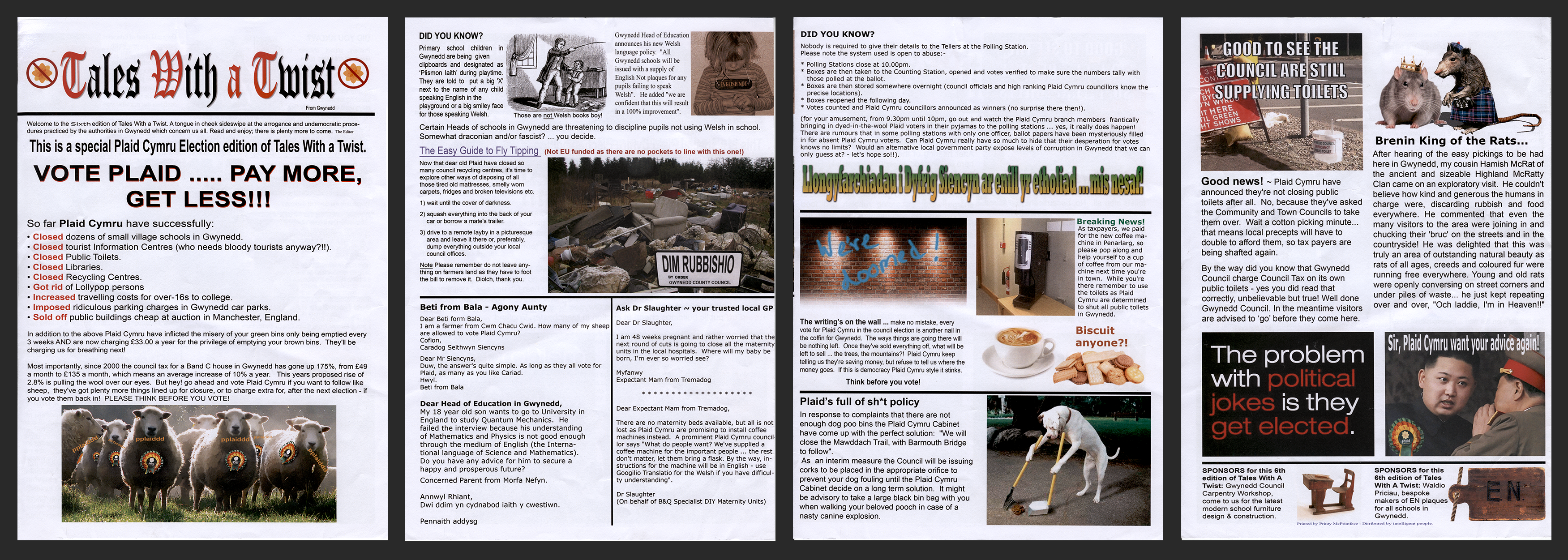









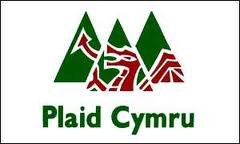 s readers of this blog will know – I don’t really support Plaid Cymru, I haven’t supported the party for decades. I don’t believe in Plaid Cymru, it’s policies, its leaders, its anything. Which means that since I lost faith in the party I have been voting Plaid Cymru for the wrong reasons: 1/ Because there is no real alternative and 2/ Because I hoped that my vote, and the votes of others like me, would help Plaid Cymru to be viewed – in England – as ‘the voice of Welsh nationalism’ and might therefore get Wales a better deal. But the first reason is totally negative and the second is nonsense, because anyone who studies Plaid Cymru for ten minutes knows that far from being a threat to the constitutional status quo it is actually one of its pillars.
s readers of this blog will know – I don’t really support Plaid Cymru, I haven’t supported the party for decades. I don’t believe in Plaid Cymru, it’s policies, its leaders, its anything. Which means that since I lost faith in the party I have been voting Plaid Cymru for the wrong reasons: 1/ Because there is no real alternative and 2/ Because I hoped that my vote, and the votes of others like me, would help Plaid Cymru to be viewed – in England – as ‘the voice of Welsh nationalism’ and might therefore get Wales a better deal. But the first reason is totally negative and the second is nonsense, because anyone who studies Plaid Cymru for ten minutes knows that far from being a threat to the constitutional status quo it is actually one of its pillars. es, and our inevitable assimilation into England, is off the agenda . . . of a ‘national’ party!
es, and our inevitable assimilation into England, is off the agenda . . . of a ‘national’ party!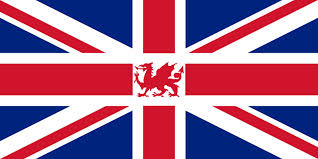 outhern vote is there for the taking . . . but not by a party with all the appeal of Sinn Féin on the Shankill Road!
outhern vote is there for the taking . . . but not by a party with all the appeal of Sinn Féin on the Shankill Road!